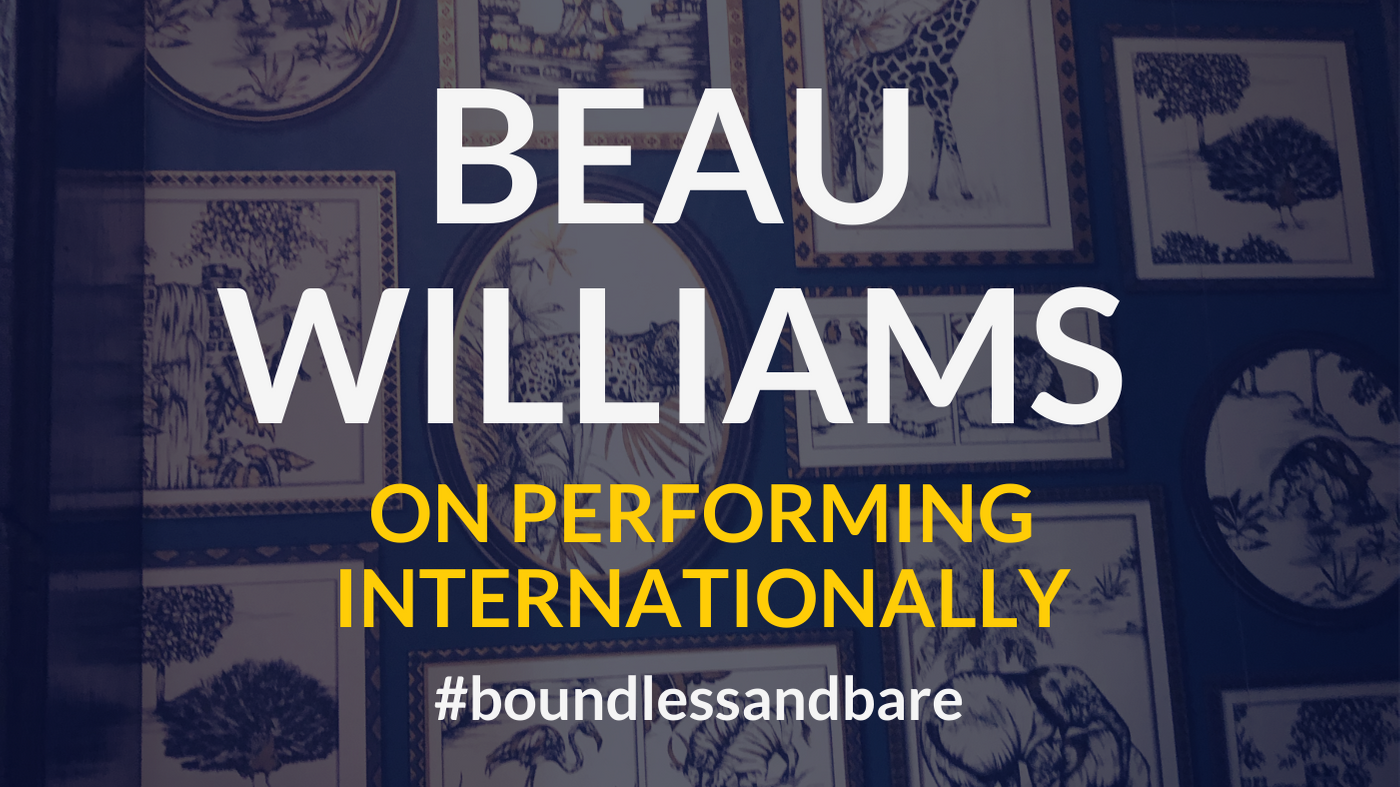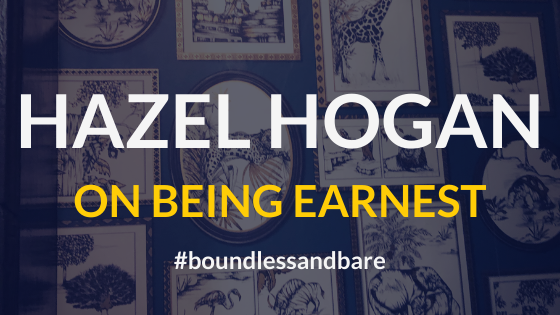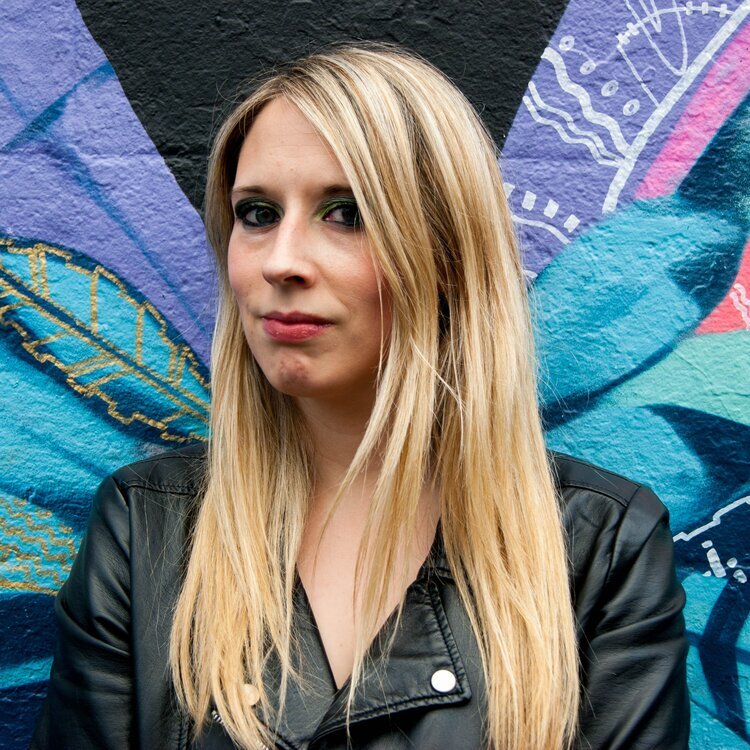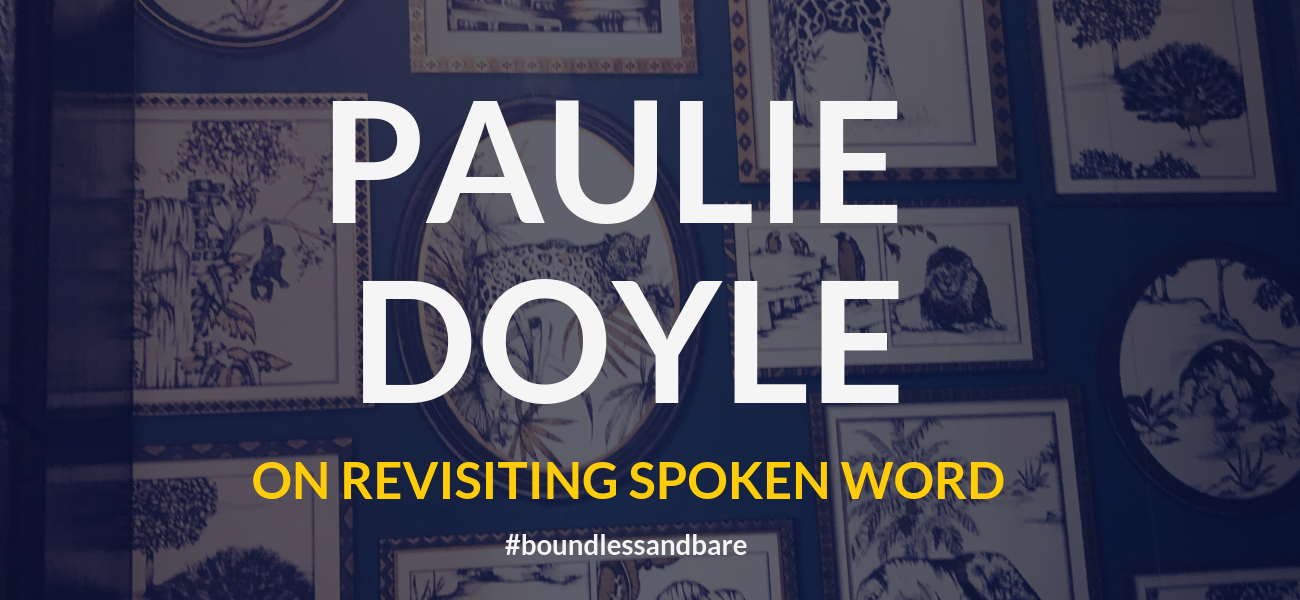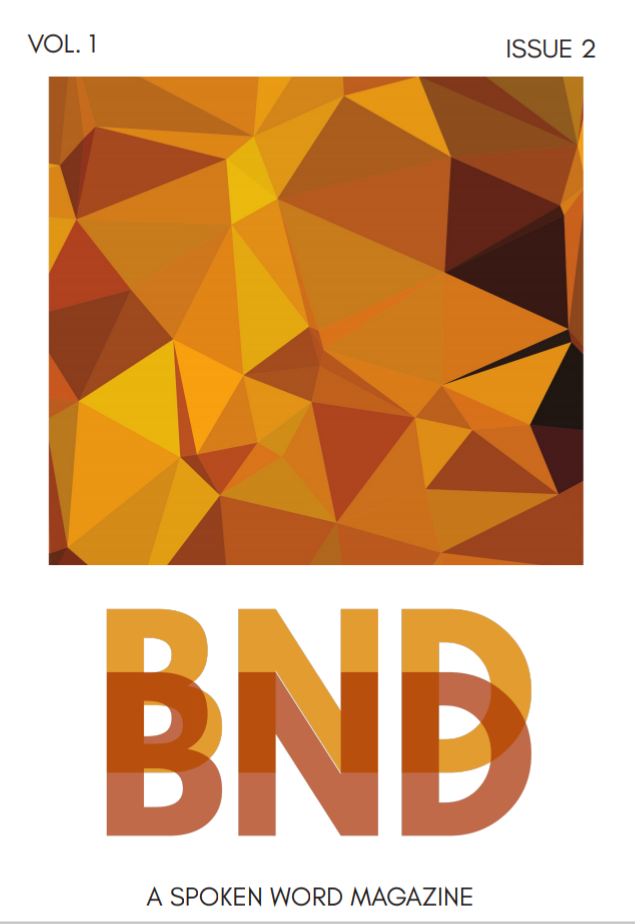A Poet in Lockdown: Q&A with Beau Williams
Melissa Ridge speaks to spoken word artist Beau Williams about his time during lockdown and the events and opportunities he has created for the online spoken word communities around Ireland and abroad.
Photographer: Julia Monard
An American performance poet based in Dublin, Williams has taught poetry workshops and performed his work all over Ireland and the US for over a decade. In 2017 he was the Writer in Residence for the Burren College of Art in Ballyvaughan, Ireland. He was awarded the title All-Ireland Poetry Slam Champion in 2018 and represented Ireland in three countries. He has published two poetry collections and holds a MA in Creative Writing from UCC.
Melissa Ridge: Was Covid 19 a help or a hindrance to you as an artist?
Beau Williams: Lockdown was weird because initially I had a tonne of shows and workshops lined up. I had a couple of workshops down in Waterford I was going to do. I was going to be part of the West Cork Literary Festival; I was going to perform on St. Patrick’s Day in Dublin which is like a life goal of mine. I had all this stuff planned and I was finally getting out of my Christmas rut because in December and January no one wants to do anything. Everyone wants to stay inside except when it’s time to do holiday stuff, so that was hard. And then I finally started making my way through and booking shows again, getting ready for the Spring, and then Covid hit so I had to cancel everything.
It wasn’t even like a quick cancel. It was like this cancelled, and we held out hope, and then this cancelled, we still held out hope and then that cancelled. Finally, once everything was cancelled, I was like ‘okay, I gotta start doing something, I gotta start taking it into my own hands’, so the motivation in the beginning was that.
I guess coming to terms with the idea of all this forced free time is really difficult because we’ve all spent our entire lives feeling like ‘okay we’re alive and we’re supposed to be doing something’ and now that lockdown has been like ‘no you’re not supposed to do anything’. It was very hard to wrap my brain around. So initially I had that, ‘gotta find ways to make money’, ‘gotta find ways to keep communities growing’, ‘gotta find ways to keep moving’. So, I came up with a couple of plans but after about a month I quickly ran out of steam because of Covid, the world was burning down.
MR: Still it seems like you were fairly busy?
BW: While it looked like I was doing a lot, and it probably seemed like I was doing a lot, and I probably still was. I’d come up with an idea, and I’d write it down, and I’d make plans for it. Then post and share about it and invite people to it. That would take like a day and then I would spend the next seven days with my head in my pillow.
All it takes is a little share on Facebook and a couple of exclamation points to make it sound like I have it all under control!
MR: Last March, you began ‘The Virtual Poetry Marketplace’ for the Irish spoken word community. What inspired you to do that?
BW: The cool part about that project was it was successful. How it all started was, the day my first show got cancelled I was like ‘Oh fuck I need to come up with something’. I was in a cafe surrounded by people; this was that time. We hadn’t even been kicked out yet.
I texted my friend Conor [Conor Quinlan, the current All Connacht Slam Champion] and I was like ‘Hey man would you be down with doing some sort of commissioned poetry programme for a bit?’ He was texting me telling me how he had lost a couple of gigs as well. And he was like ‘Oh hell yeah, anything to get money, anything to keep writing, anything to keep poetry going’.
So I was like ‘cool, me and him we’ll do this, and then I thought about it and I was like, wait, why just us two?’ Maybe we could open this up to anyone and everyone so I sent around a couple of emails to people - some people said yes, some people said no - but by the end we had something like eight poets that were down for it.
MR: So how did you set it up?
BW: I made an event. I wanted it to be like a one week thing to see if we could raise some money to cover all the gigs that were dropped. I got bios from everyone, I got links to their poetry or snippets of their poems and their PayPal info - or whatever payment method they could accept and I posted it all in a very easy to follow format on the event so people could scroll through and find a poet that they liked or identified with and read their stuff and think ‘I like that, I would like them to write me a poem’. So they would click onto their Paypal link and type however much money they want to send them and a writing prompt and then that poet has to write them a poem within 24 hours.
It was up to the individual poet as to whether it was successful or not. If you pushed a lot then it worked well for you, if you didn’t push at all then you didn’t get anything. Both happened. Some people ended up selling a lot and making a lot of poetry. Some people didn’t do it at all and didn’t get anything out of it.
I know for me personally, I was doing three or four poems a week for about two months, it was pretty great. Still to this day it’s open and I’m still getting commissioned poetry. I just got a Mother’s and a Father’s Day request.
MR: You, along with Hazel Hogan, also edit the 2 Meter Review. What inspired you to set that up?
BW: I thought of this before I realised that there was going to be a Covid Relief Program, which did help a lot of people. But I still wanted to be able to offer poets this idea or this plan, something that they can create so they can sell and share.
I wanted the community to continue as it was before Covid. It's so easy to just fall into a pit during something like this. Just be like ‘Nothing good is happening. The world is burning down and I don't want to do anything.’ That's when you're supposed to create!
I'd always wanted to do something like this, like an anthology or something. I have a degree in graphic design. And I've published my own books a couple of times. I know how to make a book. And I really enjoyed doing it, but I don't do it very often. But I've always wanted to do some sort of anthology where I did an open call for submissions.
A friend of mine, Hazel, who I knew also wanted to do something like this. She's a great Dublin poet and big in the community. She was totally down.
I did the actual physical layout of the publication. Hazel and I read through every submission and picked our favourites. Then we did some Zoom meetings and I advocated for the ones I picked, and she advocated for the ones she picked.
It was actually pretty easy going. It was hard because there's a lot of great work, but it was fun. It is kind of a nice honour to have people care about it enough to submit their poetry and have them care enough to submit stuff to what has never been previously published. So, you know, it was quite an honour to get that.
Hazel was instrumental in that. And she also picked up a lot of slack when I would get burnout. It came on strong, and it hit me like, a week or two before the actual launch. I just texted her and I was like, ‘Hey, I've dropped the ball on a couple things I need you to pick it up’. She was like, ‘I'm on it’. She made the event and pushed everything and emailed everyone. She did a lot of great work.
MR: Did you want the submissions to have a pandemic theme?
BW: No. It was a free-for-all. There are only some Covid poems in there and lockdown poems but the general theme of it, there wasn't really one. It was just kind of whatever we decided was the best poetry that was submitted. The editing process is very icky, and it's sticky. I don't love it, but I do love getting to read everybody's poetry. That's kind of cool.
MR: I know you’ve also been working on your online MC skills during lockdown tell us about them.
BW: Yeah, I’ve been hosting online workshops and shows. I do writing workshops. And those are fun because people sign up and, and it's just like a writing workshop that you'd have in person. It's very intimate, very fun. We'll do writing exercises, we'll analyse poems, and for each workshop I try and have a theme so that way people can look at it and say, ‘Oh, that's something I'd like to work on in my poetry or, oh, I don't, I don't know how to do that.’
I do one workshop on poetry for beginners. I call it that, but it's poetry for anyone. So, whether you've never written a poem before in your life, or you've been doing it for years, you'll still learn something. In that workshop, I really bring it down to the core values of poetry and you know, it's nice to be able to go back to the basics.
Then I also do one where we focus on imagery and one where we focus on vulnerability and one on condensing your work. And then just a regular general writing workshop. But yeah, those are really fun. They're pretty well attended and I've heard great feedback from it.
MR: And the shows?
BW: I just did one called Is Something Burning?. It was a live poetry show from the kitchen. I set up my chair and we were cooking lasagne, vegan lasagne. And when I say we, I mean Katie was cooking and I just got to sit in front of it while it cooks and I read poems and people would sign in and say, Hey, or suggest poems or ask questions or recipes or whatever.
MR: Do you miss live shows?
BW: It's so much easier to dismiss something that's online, as opposed to a night out where you put on a good dress and put your face on, take the bus up to the venue. and order a drink. And so, there's a whole night planned for a real-life event.
But online, it's easier. You could be finishing up the dishes two minutes before you're supposed to sign on and then throw on a shirt and sit on the bed and watch it. It's less commitment. But yeah, I've had shown, you know, where I had twenty people there and I've had shows where there's like four people there. That's kind of how much would come to a normal reading. But the hard part is, the only people that would come to a show that I put on from my home would be people that are already in my community.
You know, if I were to do a show at like, Circle Sessions, that's a whole bunch of people that are going because to be a part of the Circle Sessions space. That makes a difference because it’s their space I’m performing in and meeting new people. In my home it’s people I already know for the most part. I’m grateful for both of them but they’re different crowds.
MR: Which space do you prefer to perform in?
BW: If I had the choice and both options were available, I'd say in person, because I miss the audience reaction. I miss connecting with the audience. In person, having to battle with whoever's chatting at the bar, you try and earn their attention by doing a better version of your poem than you might normally do.
It's those personal connections that I've missed a lot. And I'd love to get back into that. But I do like the virtual stuff. I'm a big fan of it, I think for what we're allowed to do and what we can do, I think it's amazing that there's no more restrictions. You can have someone from Dublin or Australia come to your show. It doesn't matter. Anybody with the Internet can come to your show. So that's kind of cool. That's something that you can't get at a live show.
MR: Are you worried about the future of the performing arts in Ireland?
BW: I think people care enough about it for it to keep going. And I think, you know, organizers and fans and artists, all three categories of people will care enough about it to support each other.
I can definitely see the old readings popping up as well as newer things. I think there will be things that people have never heard of before that will come out. I think necessity is the birth of innovation.
I could totally see some sort of like, new app coming out or new, or some sort of way to translate the live events to virtual events in new and exciting ways. Once people start doing it more, it'll start becoming more of a commonplace thing and it won't be scary and it won't be as weird.
It's like online dating, you know, like, back when it first came out, if you told someone that you met on online dating or that you were on, Tinder or whatever, they thought you were a freak. But now like, one in five couples have met through online dating. Like it's totally common out of all taboos. And I think that's gonna happen with performance shows and stuff like that. I think we'll find a way to make it work.

